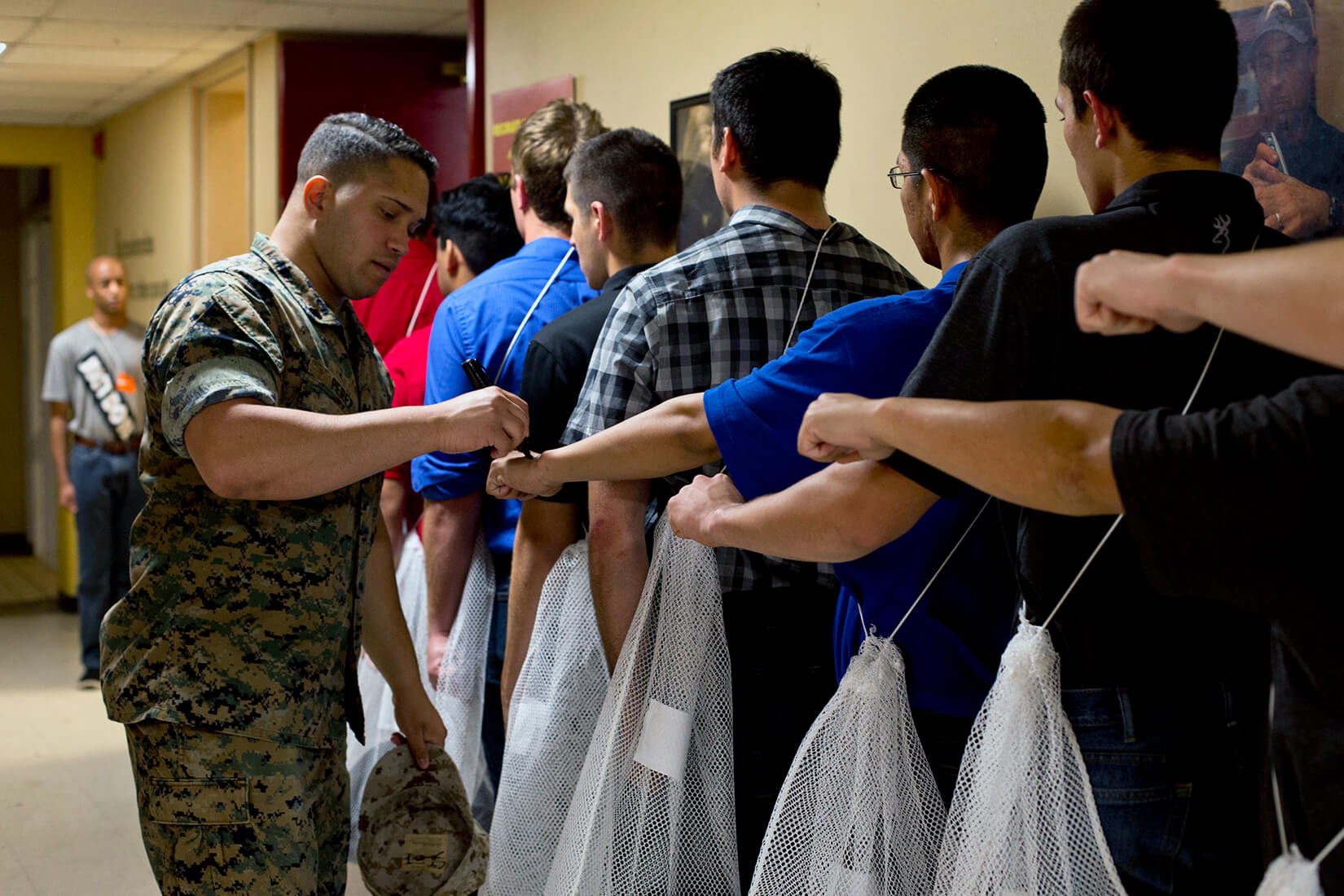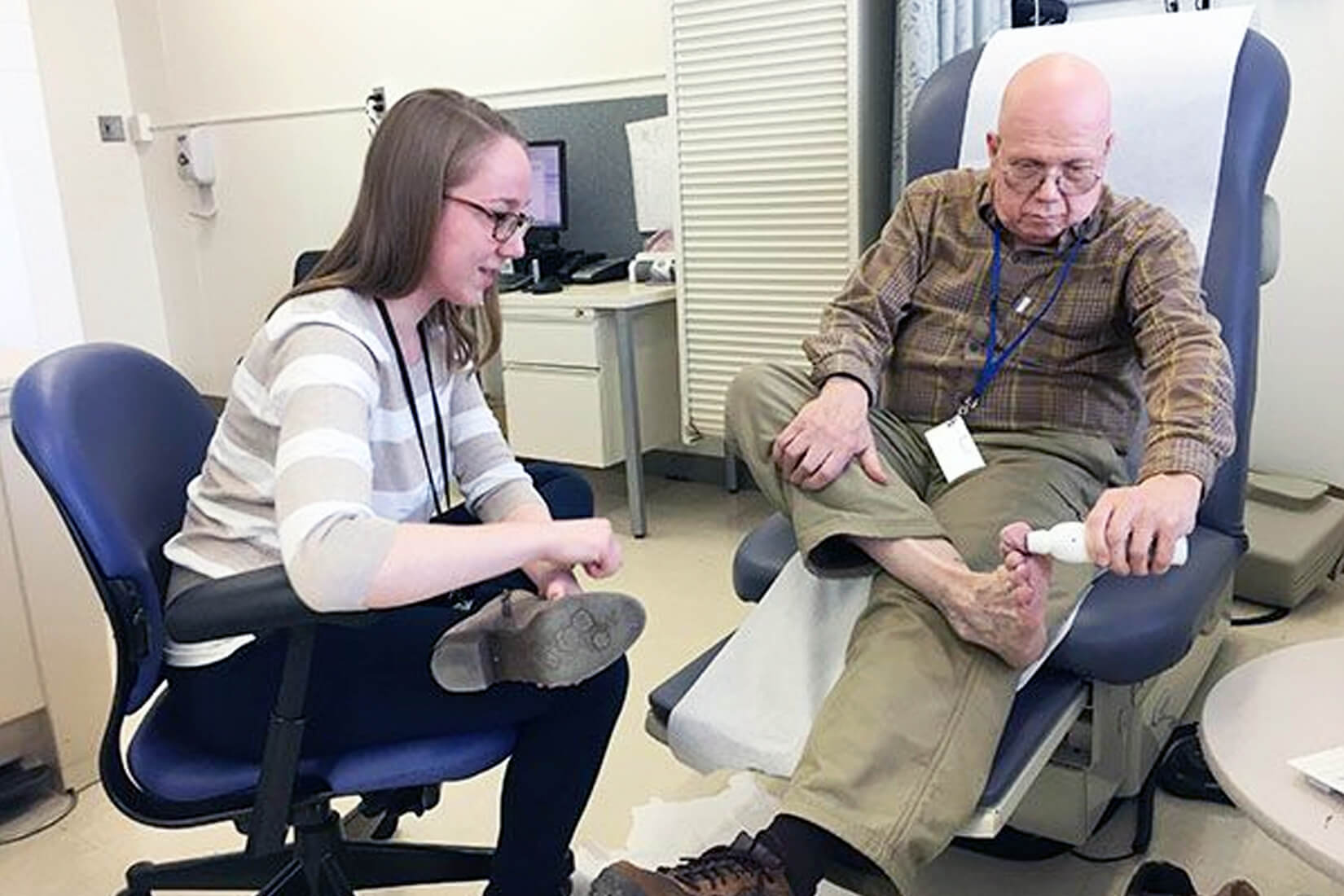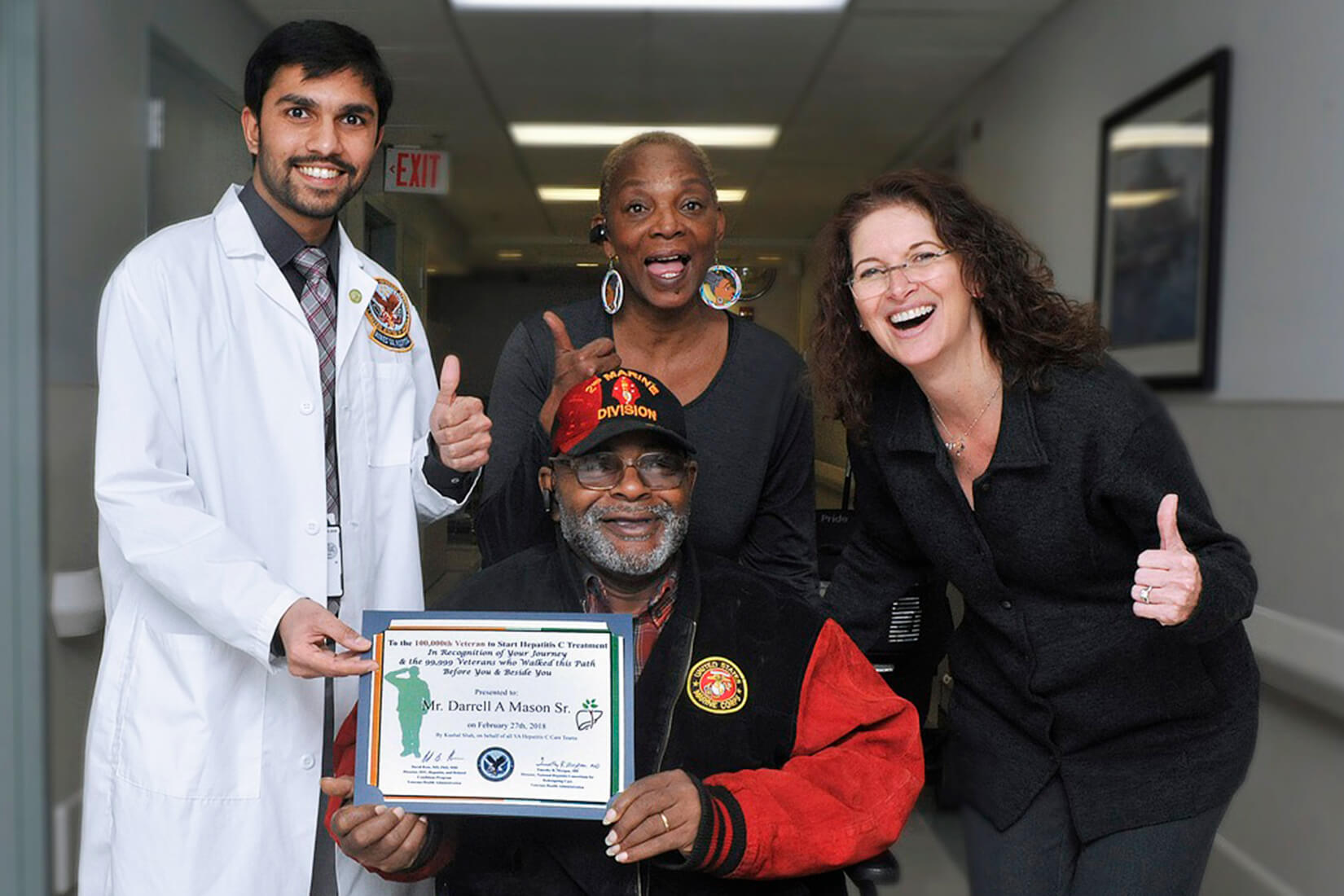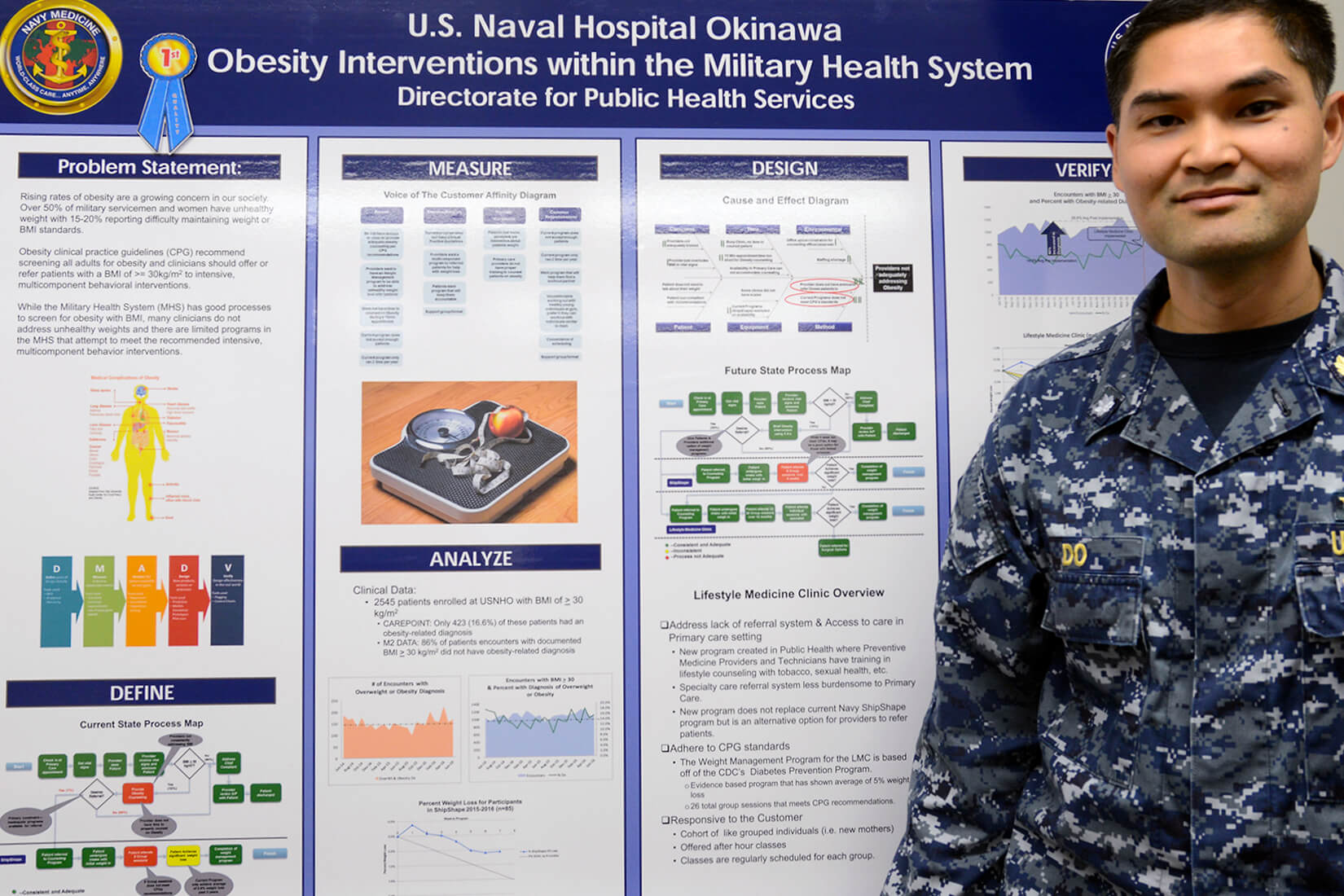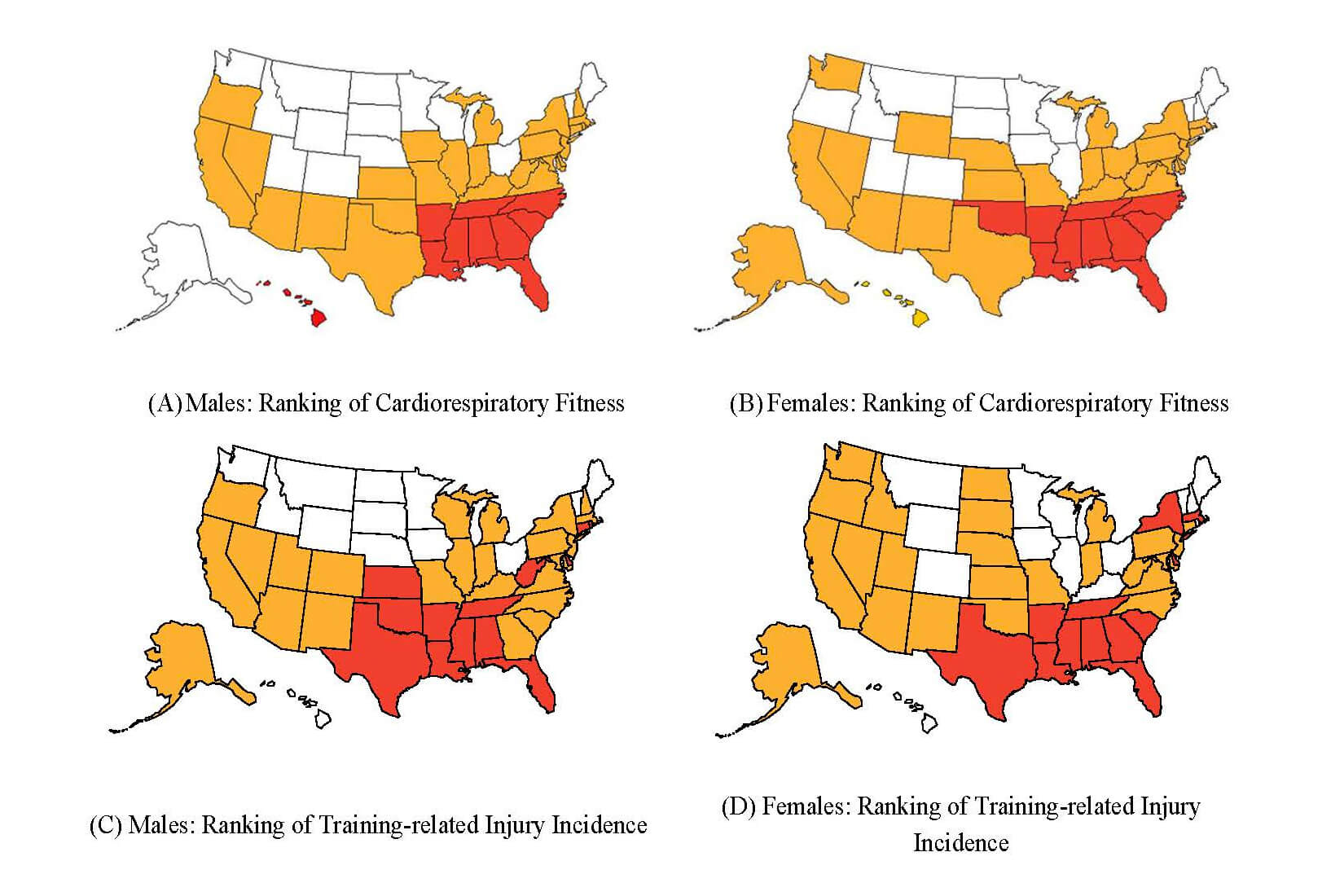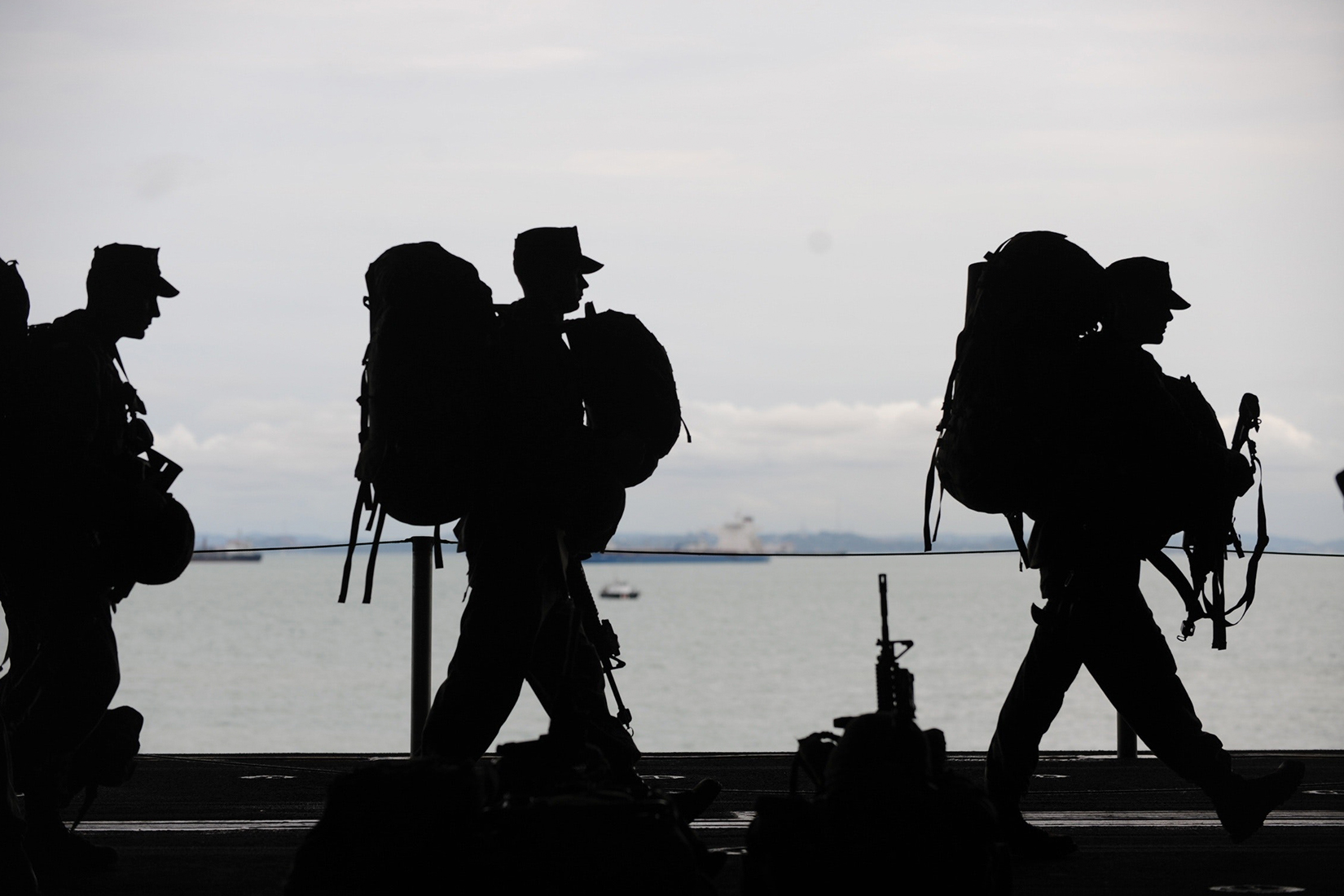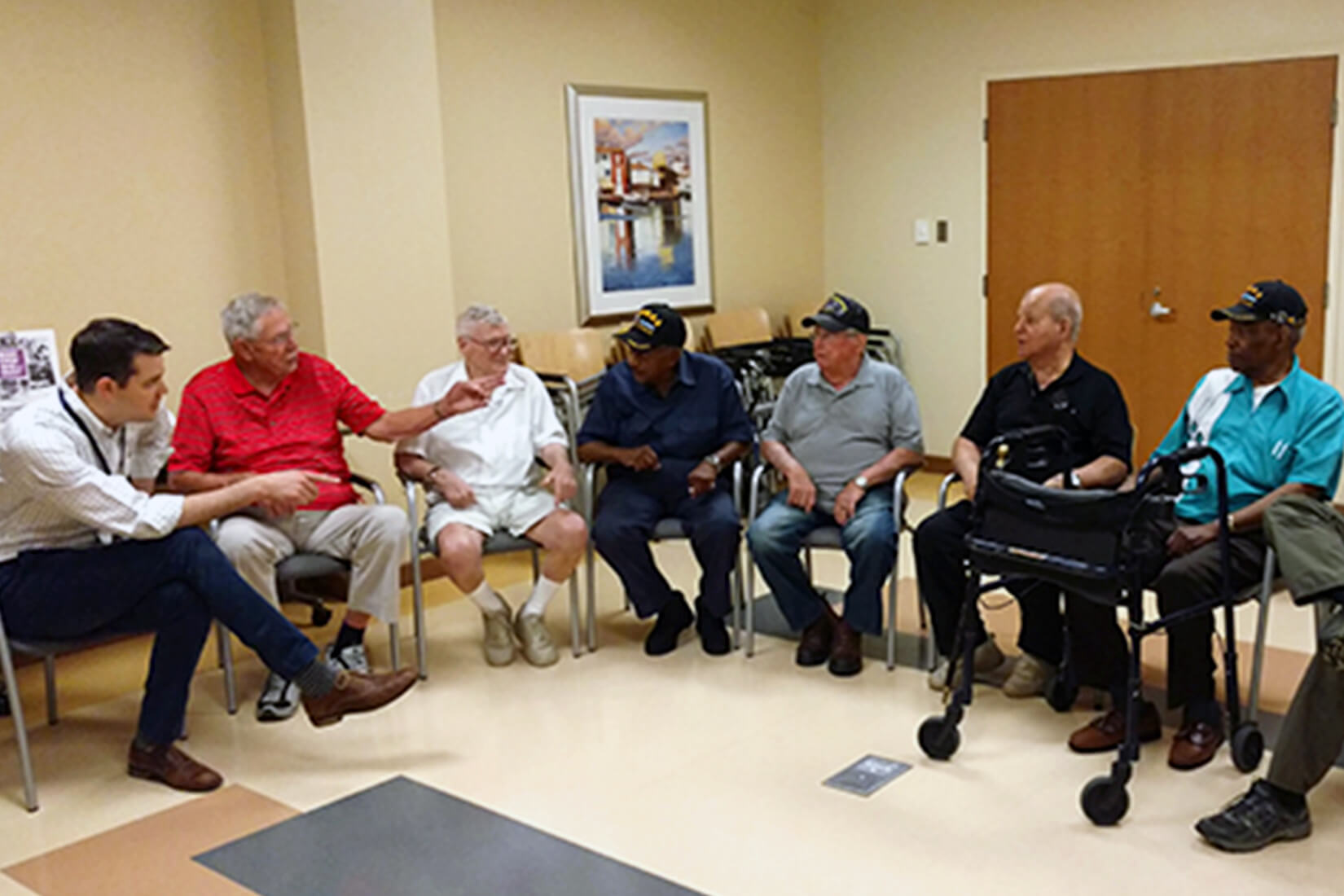Accounting for nearly a third of all cancer diagnoses, prostate cancer is the most frequently diagnosed cancer in the VHA, where past research has suggested that the malignancy is caught earlier than in other healthcare systems.
Personalized Medicine Brightens Outlook for Most Common Kidney Cancer
In the past five years, 10 new system therapies have been approved for renal cell carcinoma (RCC), the most common type of kidney cancer.
Targeted Therapies Transform RCC Treatment Over Last Decade
In the last decade, the development of multiple molecular-targeted therapies has dramatically altered the treatment landscape for advanced renal cell carcinoma (RCC).
VA Mental Health Experts Urge Intensive Pre-Enlistment Schizophrenia Screening
The most common age for diagnosis of schizophrenia is late teens to early 30s.
Preventing, Treating Diabetic Foot Ulcers Are Complex Challenges at VA
Some of the risks of diabetic foot ulcers (DFUs) are well-known, including infection and, in the most severe cases, amputation.
Liver Cancer Continues to Rise, Even as VA Declares Victory Over HCV Infection
In March, then-VA Secretary David Shulkin, MD, announced at the annual Wharton Health Care Business Conference that the VA will have eliminated hepatitis C infections among all patients willing and able to be treated by next spring.
MS in Gulf War Veterans: Zeroing-In on Types, Disability Levels
While veterans serving in the military during the Gulf War era (GWE) appear to have higher risk for multiple sclerosis and a range of neurological illnesses, little has been documented previously on prevalent types of MS or other clinical features.
Undertreatment of Metastatic Pancreatic Cancer Treatment, Despite Guidelines
While many other cancers have seen dramatic improvement in outcomes in the past 20 years, pancreatic cancer remains one of the deadliest malignancies, regardless of stage at diagnosis, with an overall five-year survival rate of only 8%, according to the American Cancer Society.
Evidence of CV Benefit Influences Diabetes Treatment Recommendations
In a significant change, the American Diabetes Association’s 2018 guidelines advocate use of a glucose-lowering agent with proven cardiovascular benefit or mortality reduction in patients with Type 2 diabetes mellitus (T2DM) and co-morbid cardiovascular disease.
Diabetes Prevalence Higher Among Veterans Than General Population
Overall prevalence of diabetes was 20% for the general U.S. population but nearly 25% for veterans, according to a recent study using data from the National Health and Nutrition Examination Survey (NHANES).
Continuous Glucose Monitoring Highly Effective But Underused in Diabetes
Recent clinical studies have documented why continuous glucose monitors (CGM) can offer significant benefits to patients diagnosed with diabetes.
DHA Adds New Weapons in the Military’s War on Obesity in Servicemembers
This spring, DoD took direct steps to counter a significant impediment to mission readiness—excessive weight among servicemembers.
Military Recruits from Some Southern States Have Lower Fitness, More Injuries
Military readiness and national security are threatened by high rates of obesity in some areas, with U.S. Army recruits from specific states having lower fitness and higher rates of injuries, according to a new study.
Obesity Is on the Rise in Veterans, Especially VHA Patients
Obesity is increasing among veterans, and the implications are potentially dire because the condition is associated with a range of serious health conditions, according to new research.
Hepatitis C Declines Among Active Military; Highest Rates for Baby Boomers
New cases of acute and chronic hepatitis C (HCV) have dropped sharply among U.S. servicemembers since 2008, bucking the nationwide trend.
Colonoscopy Linked to Lower CRC Mortality in Veterans
Colonoscopy is heavily promoted in the VA healthcare system, and a new study sought to document its effect on colorectal cancer (CRC) mortality rates.
Adjuvant Chemotherapy Improves Survival in Rectal Cancer
The standard of care for locoregionally advanced rectal cancer (LARC) in the United States usually involves adjuvant chemotherapy (AC) following chemoradiation (CRT) and total mesorectal excision (TME).
Weight, Not Diet, Associated With Higher Veteran Mortality From CRC
While suspected, the relationship between dietary and lifestyle risk factors and long-term mortality from colorectal cancer remains poorly understood, according to a new study.
VAMCs Vary Greatly in Opioid Prescribing Practices
Pain care practices at VHA facilities vary widely, possibly contributing to veterans’ likelihood of using opioids.
Navy Program Helps Injured Recruits Get Through Boot Camp
When Navy recruits have injuries preventing them from participating in intense physical conditioning, they usually are pulled out of boot camp training and receive treatment that includes daily physical therapy, pain medications and psychoeducational groups.
Which Veterans Likeliest to Use Drug Alternatives for Pain?
Effectiveness of nonpharmacological pain treatment modalities (NPMs) is supported by strong evidence, but not enough is known about the prevalence or correlates of NPM use, according to a new study.
Report: More Than 80% of VAMCs Provide High-Quality Mental Healthcare
A new report gave the VA high marks for the quality of mental health care provided to veterans of the conflicts in Iraq and Afghanistan, according to the National Academies of Sciences, Engineering and Medicine.
HCV Complications Rise in Women Veterans While Beginning Decline in Men
VA researchers expect complications from chronic hepatitis C virus (HCV) in women veterans to continue to rise for a decade or longer after rates begin to decline in men.
Among Veterans, Women as Likely as Men to Have Substance Abuse
Childhood adversity increases risk for alcohol and drug disorders for veterans, and, unlike in the civilian population, veteran women are as likely as men to have those types of problems.
VA Leads the Way in Medication-Assisted Treatment for Opioid Addiction
According to a report from the national Centers for Disease Control and Prevention, more than 42,000 Americans died from an opioid overdose in 2016—five times higher than only seven years prior—and current CDC data shows little evidence that those numbers are any lower for 2017.
New Therapy Options Recently Approved for Hodgkin’s Lymphoma
While the availability of novel therapies is making the future brighter for non-Hodgkin’s lymphoma (NHL) patients, new treatments also are coming on line for Hodgkin’s lymphoma, which is a hematological cancer distinct from NHL.
CTCL 6-10 Times More Common in Veterans; Agent Orange a Factor New Therapies Raise Optimism about Treatment
Chances are, if you haven’t trained or practiced at the VA, you haven’t seen cutaneous T-cell lymphoma (CTCL), a form of non-Hodgkin lymphoma.
VA Care Not Timely in Early Lung Cancer; But Did It Matter?
Multiple organizations have recommended timely treatment for patients with lung cancer.
Maintenance Rituximab Increases Survival in Follicular Lymphoma
Because several studies have suggested it fails to increase overall survival (OS) despite prolonging progression-free survival (PFS), use of maintenance rituximab (MR) following chemoimmunotherapy in follicular lymphoma (FL) remains controversial.
Cabozantinib May Help Overcome Checkpoint Inhibitor Resistance in GU Cancers
The treatment armamentarium for renal cell carcinoma and other genitourinary cancers continues to expand.


